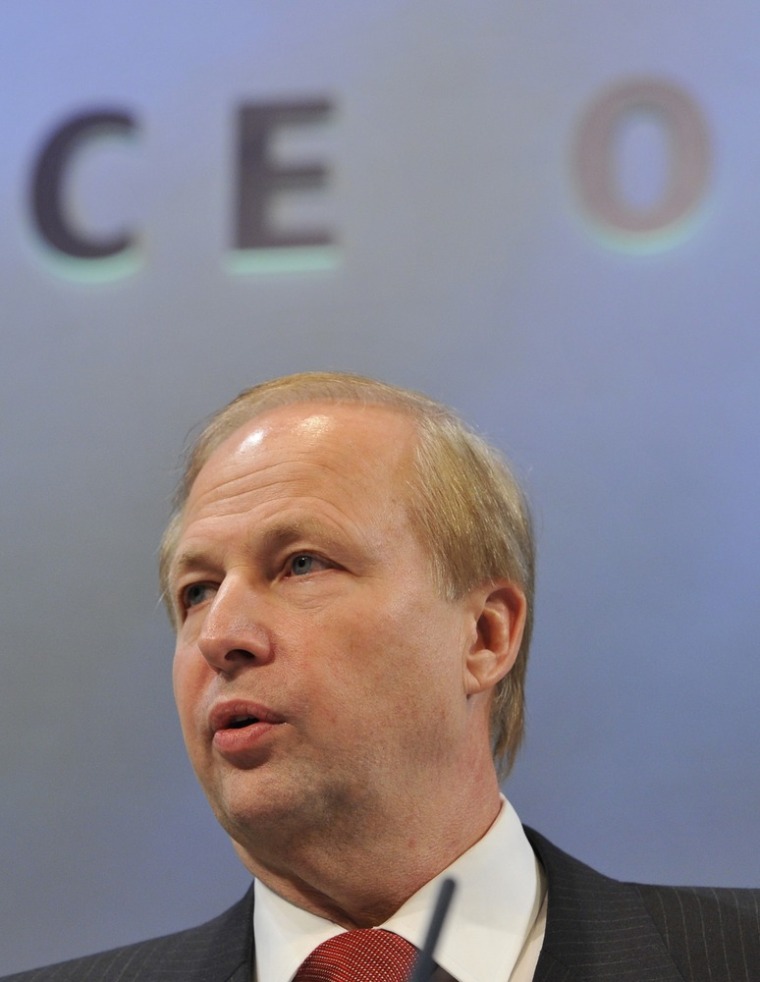BP's new chief executive said its rivals and the media had helped cause a climate of fear during the summer when the oil giant's blown-out Gulf of Mexico well caused the worst ever oil spill in the United States.
The comments by Bob Dudley represented the latest volley in BP's battle to rebuild its battered reputation by taking a harder line with those who have blamed the disaster on a safety culture at BP that, they said, put cost-saving before safety.
However, the remarks also prompted angry reaction from one U.S. lawmaker who said the company continued to be in denial about its responsibilities and called on Dudley to testify before congress.
In an address to the annual conference of British business lobby group, the CBI, Dudley said there had been: "A great rush to judgment by a fair number of observers before the full facts could possibly be known, even from some in our industry.
"I watched graphic projections of oil swirling around the gulf, around Florida, across and around Bermuda to England -- these appeared authoritative and inevitable. The public fear was everywhere," he said.
BP said in late July that Dudley would take over as chief executive Oct. 1, succeeding Tony Hayward who had come under fire for his public gaffes, including playing down the extent of the disaster, which inflamed public opinion.
Dudley's comments on Monday echoed those he made early in the 87-day crisis during a television interview, when he said scientists who argued the well was gushing up to 70,000 barrels per day were "scaremongering."
At the time, Dudley said the "best estimate" of the flow rate was 5,000 bpd.
A government panel later put the flow rate at 62,000 bpd.
BP's rivals including Chevron, Exxon Mobil, and Royal Dutch Shell, have said they would not have drilled the blown-out well the way BP did.
The companies have also rankled at BP's argument that the disaster highlighted failures in the industry, rather than flaws specific to BP.
However, BP's own internal report into the disaster placed the blame largely on the contractors BP hired to drill and cement the well.
At least one member of congress slammed Dudley's comments.
"BP is continuing to point the finger at everyone but themselves. Since this disaster began, BP has stood for "Blame Passed'," said Rep. Ed Markey, D-Mass., in an e-mailed statement.
Markey said Dudley had refused a request to address a congressional hearing to discuss the spill and asked him to reconsider.
Dudley also thanked the British government for its "stalwart support" in the face of harsh attacks from U.S. lawmakers during the crisis. "At the height of the crisis it made a big difference knowing we had such good friends at home," the U.S.-born Dudley said.
